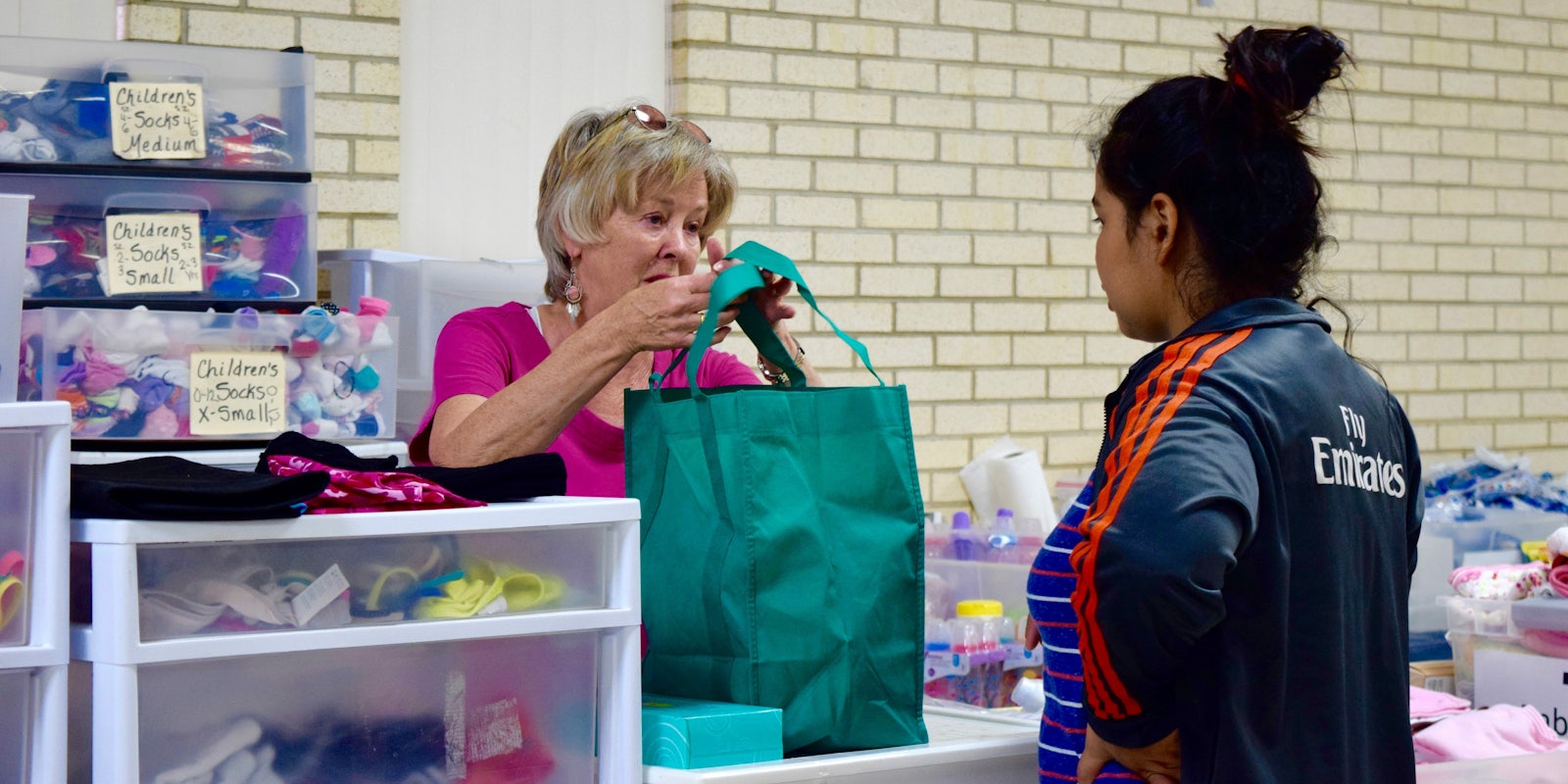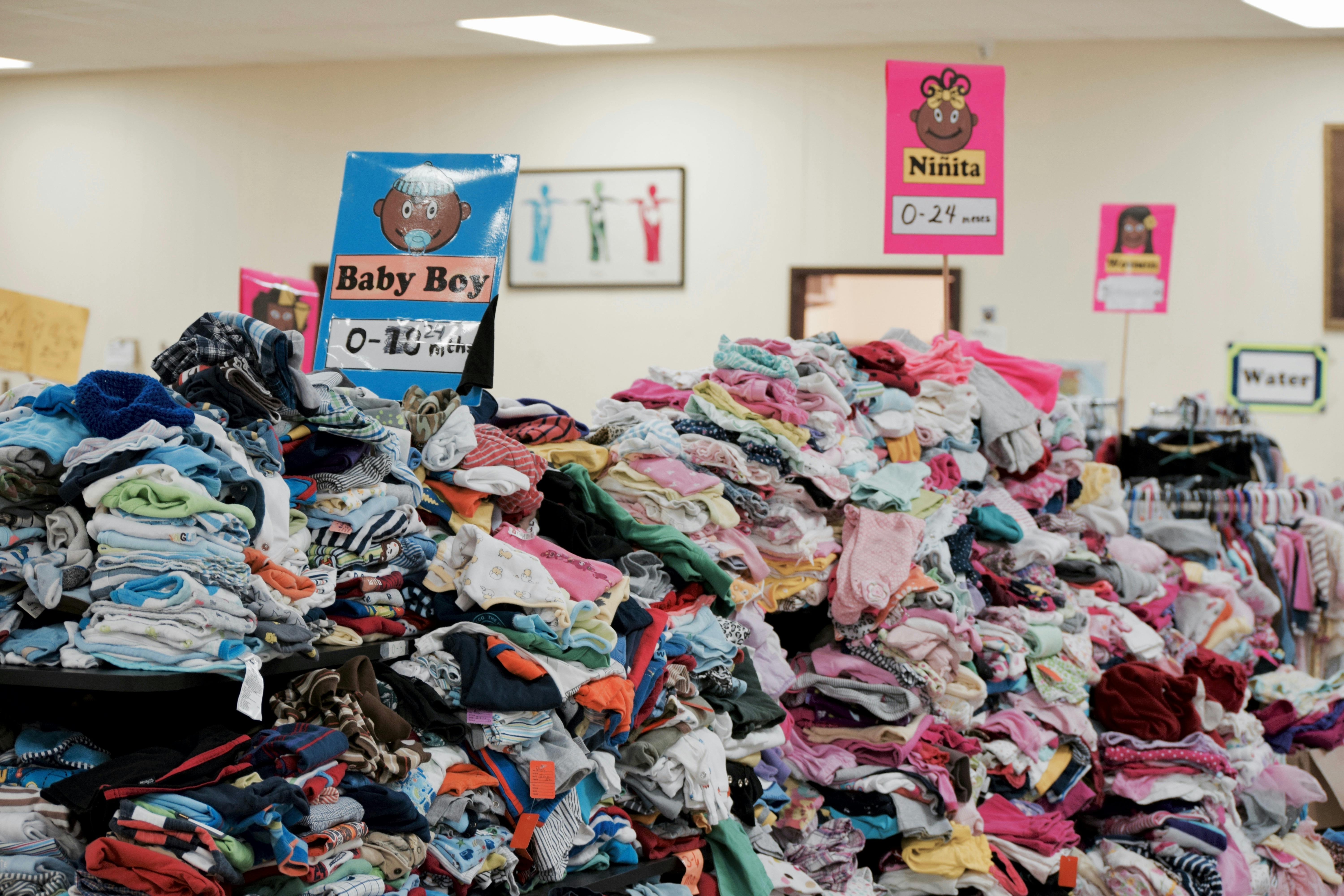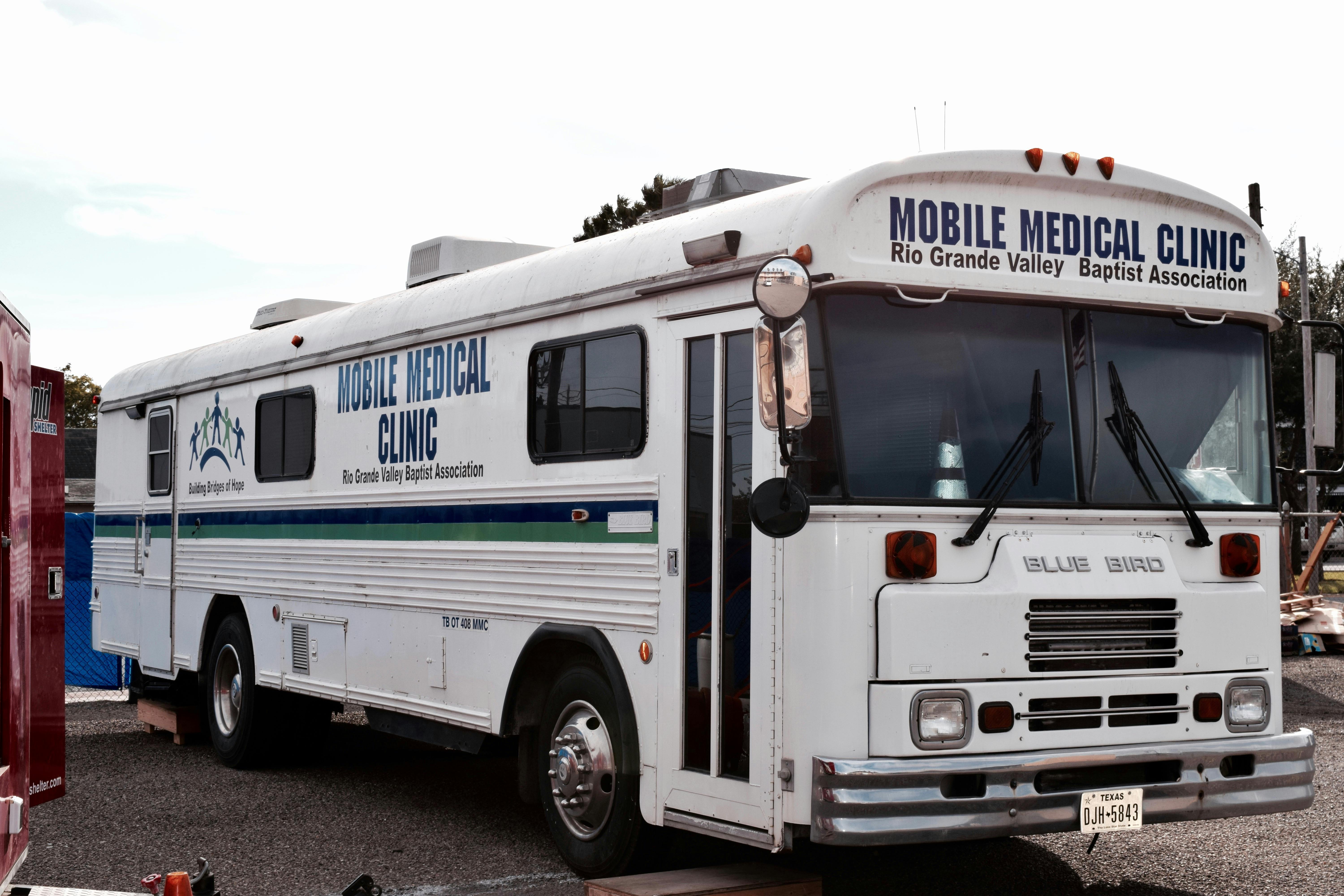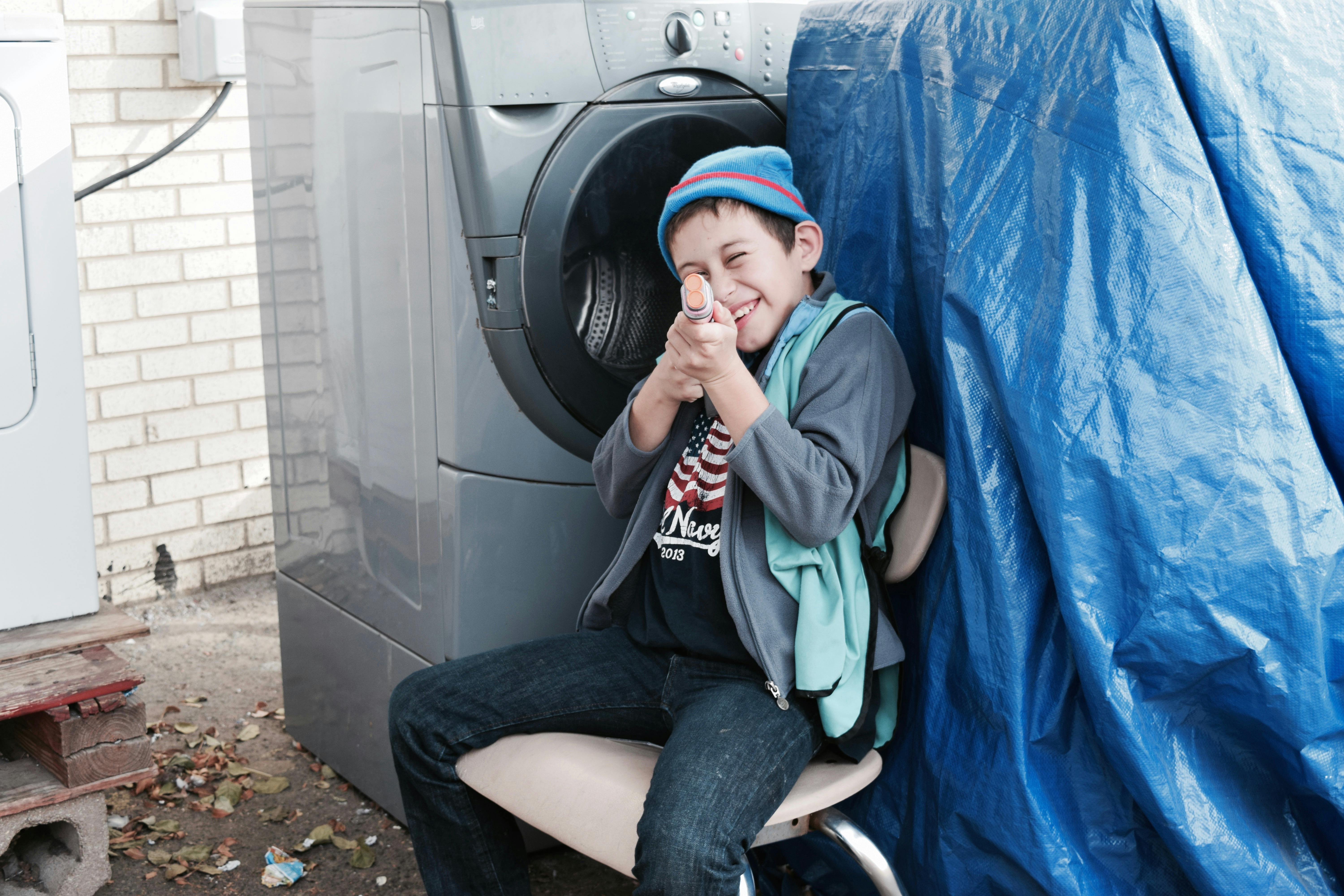In a church parish hall, massive pink piles of children’s clothes lie neatly next to baby blue onesies. Denims are draped over clothing racks and boxes are filled with diapers. The faint smell of soup fills the air, and all is quiet except for the sound of the volunteers’ shoes walking up and down the hallway.
These 20 volunteers scrambling around Sacred Heart Church in McAllen, Texas, are preparing for—and eager to welcome—the arrival of an unknown number of immigrants.
Every day, anywhere from 100 to 300 immigrants of who have made long and treacherous journeys from Central America and Mexico stop into this respite center. And despite President Donald Trump’s talk of building walls, the center’s doors don’t plan on shuttering anytime soon. In fact, ground has already been broken for a new space nearby, so it can better accommodate those crossing the border.
The immigrants who come to the center—mostly from Honduras, El Salvador, and Guatemala—have already turned themselves in to U.S. officials at the border. To seek asylum, they must wait for a court order, which will tell them if they will be deported or granted temporary permission to reside in the states. Those with permission are sent to different locations across the U.S. to continue the immigration process.
But before the immigrants move on to a new town or state, the respite center in McAllen gives them a chance to shower since they have been on the road for weeks, months even, without a proper cleaning. They also receive hygienic items, a set of clean clothes, and fed a warm bowl of soup. Medical care and phones to call family members are also available. It’s a period of much grace after a tumultuous journey.
The Sacred Heart Respite Center was created in 2014 by Sister Norma Pimentel, the executive director for the Catholic Charities of the Rio Grande Valley, out of a desperate need: That summer, the valley experienced a massive influx of immigrants from Central America who were escaping violence from gangs and drug cartels. The belief was that U.S. immigration law could make special provisions since many of them were unaccompanied children. However, numbers totaled in the thousands, which border patrol facilities were not equipped to hold. It became clear that U.S. officials needed help to provide humanitarian conditions to immigrants fresh from the border.
In conjunction with the City of McAllen and Border Patrol staff, the center still receives immigrants on a daily basis, but it doesn’t get nearly as much media attention as it did in 2014. According to Pimentel, the numbers fluctuate weekly, but immigrants will stop by anywhere from several hours to a few days before being sent to the nearby bus station to depart to their next destination. Around 60,000 immigrants have passed through the center since it opened.
Pimentel, or Sister Norma as she is known to everyone at the parish hall, says the center has been made possible because of the community’s generosity in providing donations and time to volunteer. And when you walk into the center what’s most striking are the human faces, not the politics, of immigration—the tired, relieved, hungry, and hopeful faces. Here, it is not about being pro- or anti-walls, it’s about recognizing the realities immigrants must contend with.
On this particular winter day, a woman holds the hand of her 4-year-old son as they step into the center. The parish hall explodes in applause at their arrival. Following the woman are the rest of the families who have just been dropped off coming from the detention facility in Brownsville, Texas, after crossing the border.
The volunteers clap whenever people arrive to recognize the effort immigrants made to reach the U.S. The volunteers repeatedly say “bienvenidos,” their faces warm with smiles, before guiding families through the various stations—handing out personal care items, food, clothes, and lastly given time to shower and rest.
When Pimentel meets with the families at the center, the first thing she does is ask them how they are doing.
“The very first question I ask them is ‘¿Como estas?’ and many times they start to cry because they’ve been through a lot and have had a rough journey,” Pimentel said. “You see their faces and you see how normal they are, they’re just like any mother and father or child. They’re very appreciative of how we’re here to help.”
Pimentel, whom Pope Francis has recognized for her humanitarian efforts, says her goal is to treat these families with warmth, decency, and respect so that they can see they are welcome, that they are supported.
“These are families that are here hoping to be given permission to stay in this country temporarily until things get better in their country because there is a lot of violence and fear in their countries,” Pimentel said. “They just want a chance to be safe.”
Another woman at the center, Maria Fernanda, is 18 years old and alone. She escaped Nicaragua’s poverty and violence in hopes of becoming a nurse in the United States. She was inspired by her mom and older sister who are also nurses in Nicaragua.
The mention of her mother instantly triggers Fernanda to tears, but she smiles and says, “Espero que todo salga bien.”
I hope everything turns out well.
Like many immigrants, Fernanda’s future is unclear. But the humanity offered at the center may be the thing for now to carry her through.





